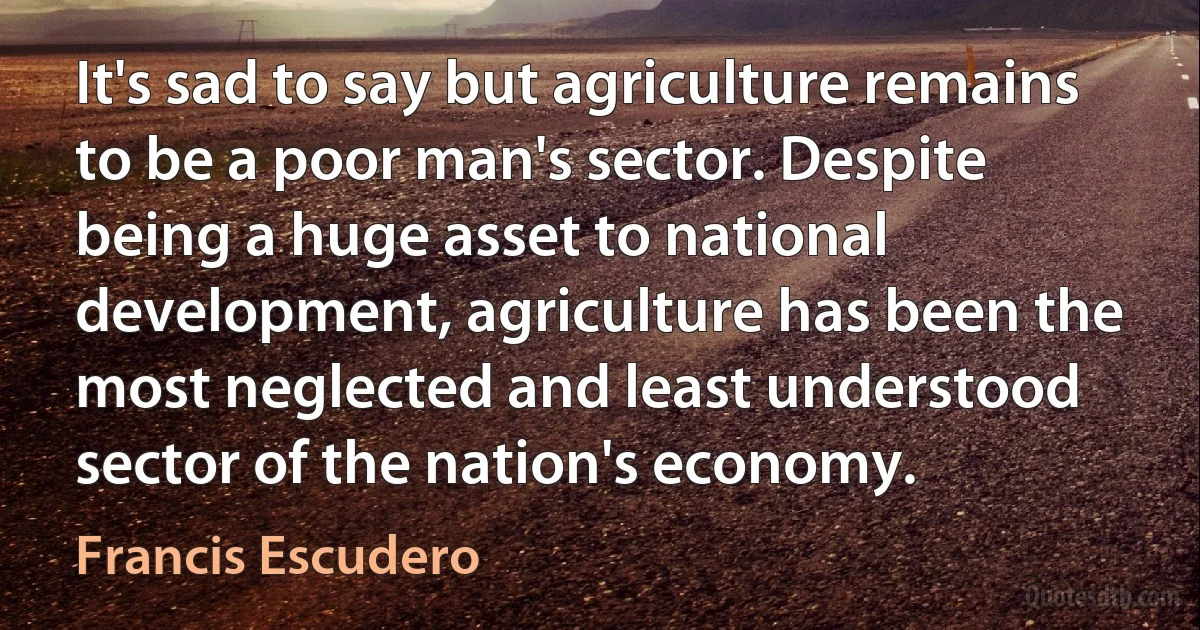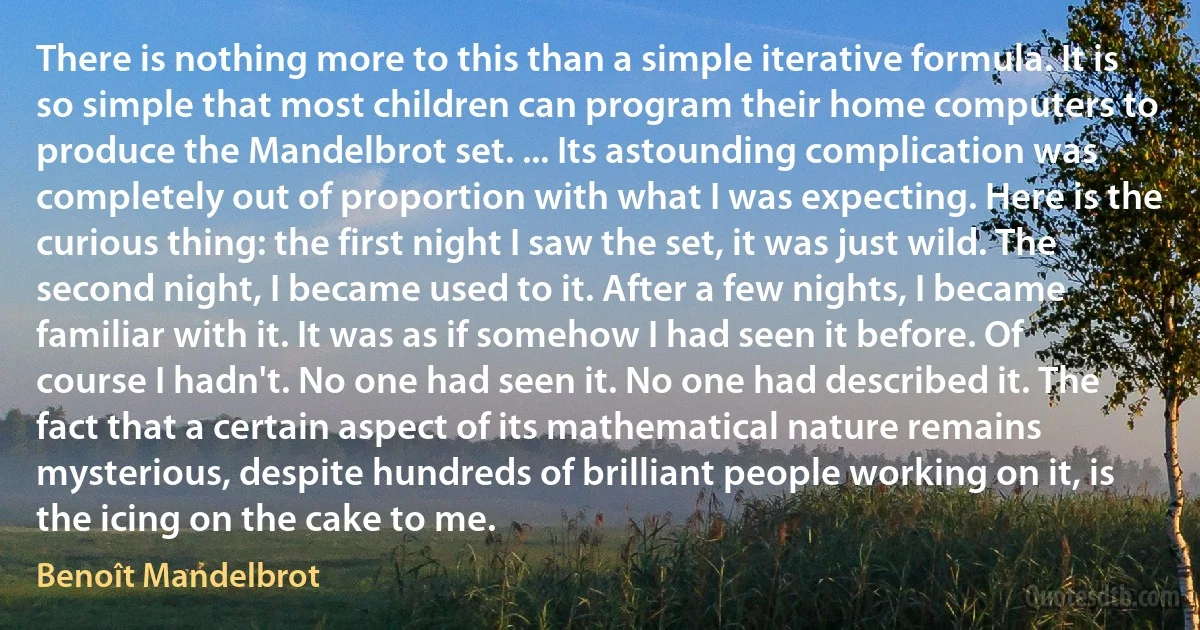Remains Quotes - page 62
Black propaganda and negative politics do not and will not work here or elsewhere, simply because of one thing - it is based on a lie. As Rex Gatchalian, spokesperson of Senator Grace Poe said earlier, "The recent story being circulated that Senator Chiz had abandoned Senator Grace is baseless and barefaced lie. If the people behind this story plan to drive a wedge between the two candidates, they should stop wasting their time as the two candidates continue to fight the battle together, side-by-side. The Poe-Escudero tandem remains strong despite all the black propaganda hurled against them. It's disgusting that certain groups continue to destroy our candidates - first individually and now as a tandem."

Francis Escudero
The United States remains the last best hope for a mankind plagued by tyranny and deprivation. America is no stronger than its people -- and that means you and me. Well, I believe in you, and I believe that if we work together, then one day we will say, We fought the good fight. We finished the race. We kept the faith. And to our children and our children's children, we can say, We did all what could be done in the brief time that was given us here on earth.

Ronald Reagan
Everything in this life passes away - only God remains, only He is worth struggling towards. We have a choice: to follow the way of this world, of the society that surrounds us, and thereby find ourselves outside of God; or to choose the way of life, to choose God Who calls us and for Whom our heart is searching.

Seraphim Rose
It is only necessary to seek one thing: to be with Jesus. The man who remains with Jesus is rich, even if he is poor with regard to material things. Who ever desires the earthly more than the heavenly loses both the earthly and the heavenly. But whoever seeks the heavenly is Lord of the whole world.

Ignatius Bryanchaninov
If the kingdom of God is within us and that is a kingdom of justice, of peace, and of joy then whoever remains with these virtues is certainly in the kingdom of God. By contrast, all who deal in unrighteousness, in discord, and in death-bearing gloom have taken their stand in the kingdom of the devil, in hell and in lifelessness. It is by these tokens that the kingdom of God or of the devil is recognized.

John Cassian
...when seeking material light, remember the spiritual light which is indispensable for the soul, and without which it remains in the darkness of the passions, in the darkness of spiritual death. 'I am come as a light into the world,' says the Lord, 'that whosoever believeth on Me, should not abide in darkness' (Jn. 12:46).

John of Kronstadt
One of the most fascinating parts of their story is the Game Change authors' insistence that John McCain – he of the clenched fists and frequent outbursts, the infamous temper – never publicly repudiated Sarah Palin. McCain's advisors, staff and friends, yes. They complained long and hard and nastily about her in ensuing years. But never the senator, Heilemann and Halperin write. And now, as the nation says farewell to one of the most fascinating politicians in history, a question remains: Will all of John McCain's railing against Donald Trump ever make up for the fact that it might have been the senator's own desperation to win in 2008 that led the nation to this point? Only time will tell.

John McCain
While non-relativistic time is the observable quantity measured (or approximated) by physical clocks, in general relativity clocks measure s along their worldline, not t. The relativistic... t is a freely chosen label with no direct physical interpretation. ...The physical content of a solution of Einstein's equations is not in its dependence on t, but ...in what remains once the dependence on t (and x) has been factored away.

Carlo Rovelli
These are stories, then, about Man and Nature. We've been telling ourselves such stories forever, as a way of making sense of what we call our "relationship to nature”-to borrow that curious, revealing phrase. (What other species can even be said to have a "relationship” to nature?) For a long time now, the Man in these stories has gazed at Nature across a gulf of awe or mystery or shame. Even when the tenor of these narratives changes, as it has over time, the gulf remains. There's the old heroic story, where Man is at war with Nature; the romantic version, where Man merges spiritually with Nature (usually with some help from the pathetic fallacy); and, more recently, the environmental morality tale, in which Nature pays Man back for his transgressions, usually in the coin of disaster-three different narratives (at least), yet all of them share a premise we know to be false, but can't seem to shake: that we somehow stand outside, or apart from, nature.

Michael Pollan
My considered judgment, after years of scrutiny of, and sometimes harrowing activity in the anarchist milieu, is that anarchists are a main reason - I suspect, a sufficient reason - why anarchy remains an epithet without a prayer of a chance to be realized. Most anarchists are, frankly, incapable of living in an autonomous cooperative manner. A lot of them aren't very bright. They tend to peruse their own classics and insider literature to the exclusion of broader knowledge of the world we live in. Essentially timid, they associate with others like themselves with the tacit understanding that nobody will measure anybody else's opinions and actions against any standard of practical critical intelligence; that no one by his or her individual achievements will rise too far above the prevalent level; and, above all, that nobody challenges the shibboleths of anarchist ideology.

Bob Black
Consider in how many ways His knowledge is distinguished from ours according to all the teaching of every revealed religion. First, His knowledge is one, and yet embraces many different kinds of objects. Secondly, it is applied to things not in existence. Thirdly, it comprehends the infinite. Fourthly, it remains unchanged, though it comprises the knowledge of changeable things; whilst it seems that the knowledge of a thing that is to come into existence is different from the knowledge of the thing when it has come into existence; because there is the additional knowledge of its transition from a state of potentiality into that of reality. Fifthly, according to the teaching of our Law, God's knowledge of one of two eventualities does not determine it, however certain that knowledge may be concerning the future occurrence of the one eventuality.

Maimonides
That founding principle of the party is also a founding principle of the United States. Even when we were a tiny fraction of our present size and breadth, the framers of our Constitution understood the need for holding ourselves together, whatever our differences. They created a constitutional structure and a Bill of Rights that would accommodate within one nation all manner of interests and opinions. Americans honor that principle in the national motto on the presidential seal: "e pluribus unum" - "out of many, one." Today, the United States is far more diverse than when we were a nation of 3 million people, but the principle remains the same: We are of many different backgrounds, beliefs, races and creeds, and we are one.

John Danforth
It only remains that I offer very briefly my own estimate of the character of the Philosopher. Morally it was a blank, and can be described only by a series of negations. He did not love; he did not hate; he did not hope; he did not fear; he did not worship as others do. He separated himself from his fellow men, and apparently from God. There was nothing earnest, enthusiastic, heroic, or chivalrous in his nature, and as little was there anything mean, grovelling, or ignoble. He was almost passionless.

Henry Cavendish
The book, as it stands, seems to me to be one of the most frightful muddles I have ever read, with scarcely a sound proposition in it beginning with page 45, and yet it remains a book of some interest, which is likely to leave its mark on the mind of the reader. It is an extraordinary example of how, starting with a mistake, a remorseless logician can end up in bedlam.

Friedrich Hayek
Hayek sees that the zero-sum vision is fired by an implacable negative energy. It is not the concrete vision of some real alternative that animates the socialist critic of the capitalist order. It is hostility toward the actual, and in particular toward those who enjoy advantages within it. Hence the belief in equality remains vague and undefined, except negatively. For it is essentially a weapon against the existing order – a way of undermining its claims to legitimacy, by discovering a victim for every form of success. The striving for equality is, in other words, based in ressentiment in Nietzsche's sense, the state of mind that Max Scheler identified as the principal motive behind the socialist orthodoxy of his day. It is one of the major problems of modern politics, which no classical liberal could possibly solve, how to govern a society in which resentment has acquired the kind of privileged social, intellectual, and political position that we witness today.

Friedrich Hayek
This grave dissociation of past and present is the generic fact of our time and the cause of the suspicion, more or less vague, which gives rise to the confusion characteristic of our present-day existence. We feel that we actual men have suddenly been left alone on the earth; that the dead did not die in appearance only but effectively; that they can no longer help us. Any remains of the traditional spirit have evaporated. Models, norms, standards are no use to us. We have to solve our problems without any active collaboration of the past, in full actuality, be they problems of art, science, or politics. The European stands alone, without any living ghosts by his side; like Peter Schlehmil he has lost his shadow. This is what always happens when midday comes.

José Ortega y Gasset
A division had to take place. On both sides, in Hindustan and Pakistan, there are sections of people who may not agree with it, who may not like it, but in my judgement there was no other solution and I am sure future history will record is verdict in favour of it. And what is more, it will be proved by actual experience as we go on that was the only solution of India's constitutional problem. Any idea of a united India could never have worked and in my judgement it would have led us to terrific disaster. Maybe that view is correct; maybe it is not; that remains to be seen.

Muhammad Ali Jinnah
Just as we cannot stop the movement of the heavens, revolving as they do with such speed, so we cannot restrain our thought. And then we send all the faculties of the soul after it, thinking we are lost, and have misused the time that we are spending in the presence of God. Yet the soul may perhaps be wholly united with Him in the Mansions very near His presence, while thought remains in the outskirts of the castle, suffering the assaults of a thousand wild and venomous creatures and from this suffering winning merit. So this must not upset us, and we must not abandon the struggle, as the devil tries to make us do. Most of these trials and times of unrest come from the fact that we do not understand ourselves.

Teresa of Ávila



